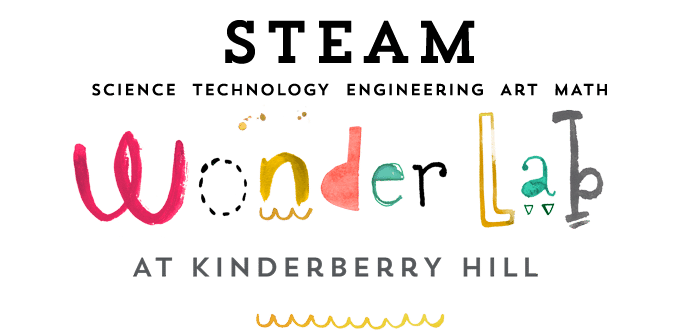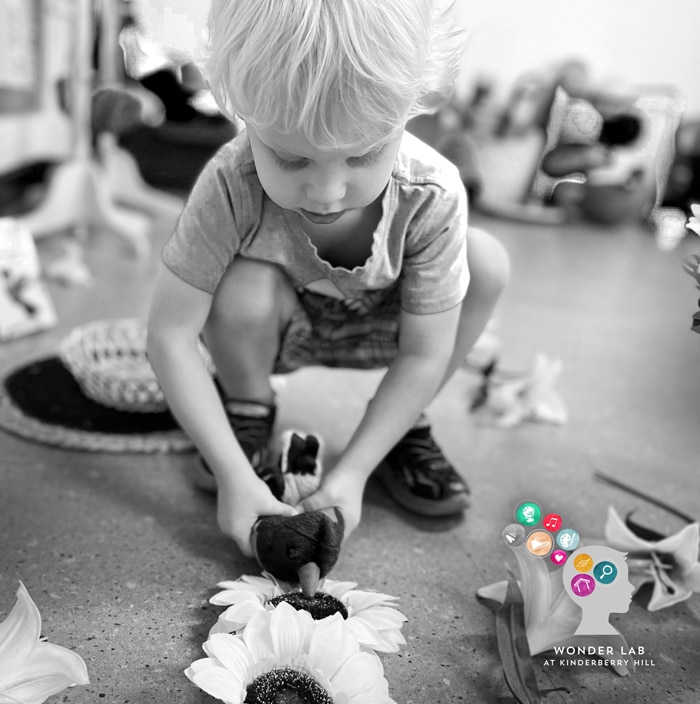Our Wonder Lab studies
take place two to four months
at a time, allowing in-depth
exploration. Each study is
based on a different theme
and incorporates a variety of
learning opportunities from all
learning domains. Themes are immersed into daily schedules and activities.
Studies are introduced
during group time activities.
Afternoons are immersed in
hands-on play experiences
to enhance learning using a
variety of materials,
resources, and cues from
the children’s interests.
Families receive frequent
communication regarding
each topic of study, including
information about the
community, family education
events, and other
opportunities through
Kinderberry Hill.







